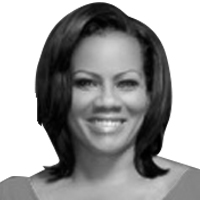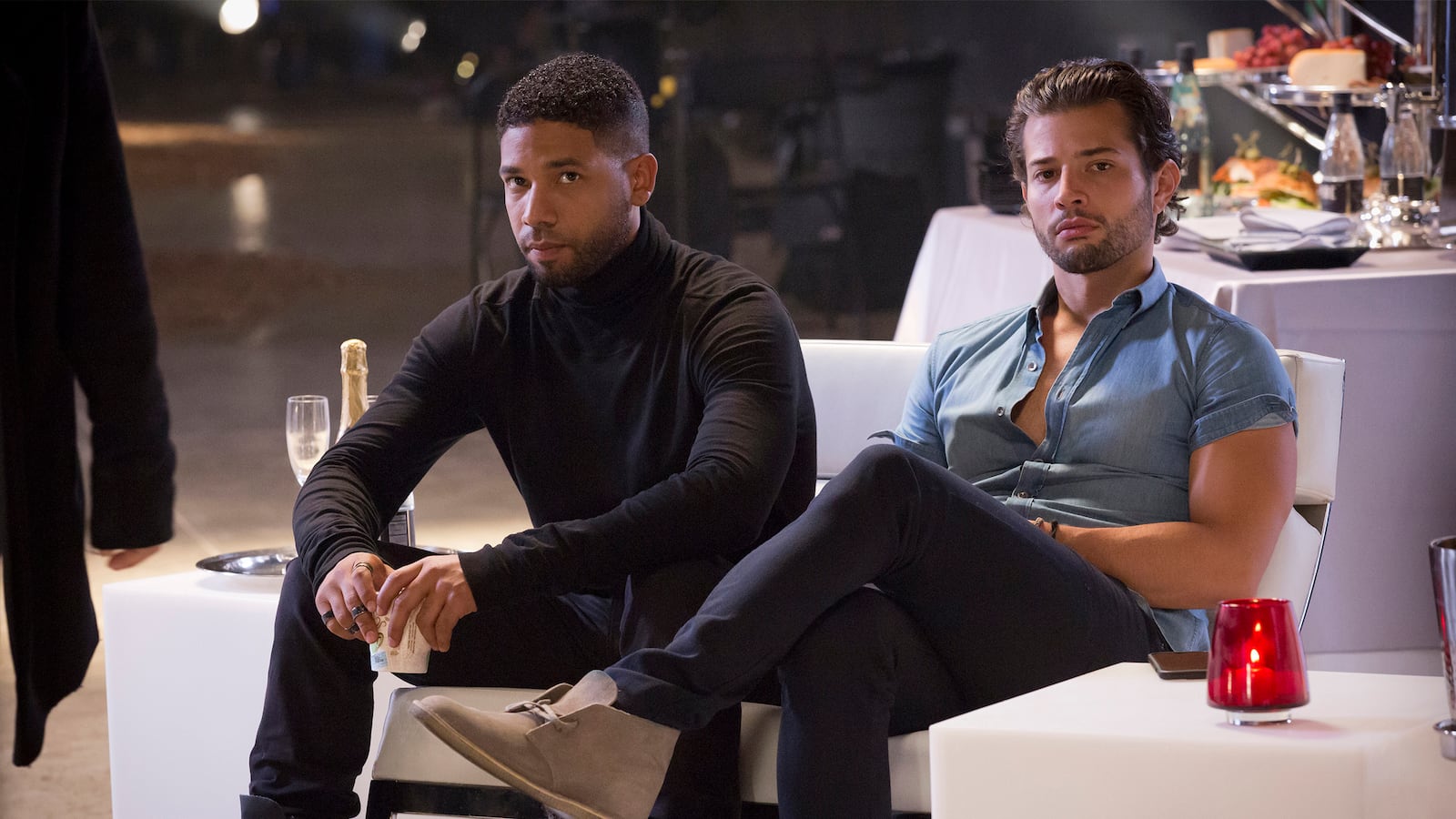When Empire hit the airwaves, no one could have predicted that the hip-hop soap opera would quickly develop a cult following, become a prime-time ratings marvel, and blow up everything we thought we knew about American television viewers. Without apology, the producers gave us the swagged-out Lyon family—a deeply flawed, backstabbing, champagne-swigging, drug-slinging, murderous cabal and demanded that we love them.
Not since the Huxtables took America by storm nearly three decades ago has a television show featuring a nearly all-black cast captivated such a large audience. One major reason for Empire’s success was a big bet on hotbed social and cultural issues paid off. Between dazzling the audience with celebrity cameos, original music, and fabulous wardrobes, Empire writers took on topics once thought taboo in the black community.
Homophobia—in relation to the family, hip-hop culture, and the church—was a critical theme from the very start. Human sexuality and how it informs the on-screen personas and relationships of fictional characters is as compelling as the ass-slapping, expletive-chucking, Louboutin stiletto-clad Cookie Lyon. An ex-convict who seems to have always known her son was gay, the cat-fighting family matriarch is especially and fiercely protective when he is assailed by his father. Jamal Lyon, played by Jussie Smollett, steps out of his father’s shadow by proclaiming himself an openly gay recording artist who can still make smash hits and rock a crowd.
In bringing Jamal to the screen, Empire writers invested in tracing the many tentacles and complications of homophobia and afforded a cultural context rarely seen on network television (or anywhere else for that matter). Unlike The Cosby Show, which debuted in 1984, Empire fishes our dirty laundry from the hamper and waves our soiled unmentionables out on nearest street corner for the world to see.
African-American viewers, who make up more than 60 percent of the audience, tuned in because they saw what they believe is a truer reflection of the cultural dynamics often paved over and lost in other productions. Maybe they didn’t have Lucious Lyon’s Bentley or Cookie’s clothes, but they knew exactly where they were coming from.

“I’m glad that I can show the African-American community that this is what you’re doing to your son,” Empire actor Terrence Howard told an audience at the Television Critics Association’s Winter Press Tour in January. Howard, who plays family patriarch and record label honcho Lucious Lyon, said, “This is what you’re doing to your nephew, this is what you’re doing to the kid down the street.”
Without question, it is a powerful story line with important messages. But is Howard right? Are black people more prone to homophobia than other ethnicities? Or is this, as writer Michael Arceneaux calls it, a “merry go-round of myth pushing?”
To be sure, African-Americans have historically been more socially conservative and report more frequent church engagement than our white counterparts—even if we don’t vote that way on Election Day. However, studies also show that black opposition to gay marriage is now down from 67 percent to 49 in the last decade alone. The truth is, despite what we see in popular media, homophobia is more generational than racial and some studies show education and income are additional factors. But some myths die harder than others. Some of the most artful storytelling is based not on reality, but what we believe about ourselves. In that way, Empire is the perfect mirror.
When Empire lost almost 18 percent of its viewers last week, rapper 50 Cent appeared to blame the ratings slide on too much “gay stuff.” Fiddy, who deleted a screengrab he snagged from another account, later explained that he was simply re-posting another Instagram message and did not agree with the attached caption comments. The controversy began swirling just days after an Empire episode that made the platinum-selling artist a punchline.
“50 Cent is still taking jabs at us,” Cookie said dismissively in the second episode of the season. “Look what he threw on the ’Gram. Thirsty ass.”
However, the fire was further fueled when comedian and radio host D.L. Hughley, himself an Empire fan and no stranger to controversy, backed him up. He tweeted that the artist formerly known as Curtis Jackson got it right. That was no surprise coming from Hughley, who previously landed in hot water after likening Caitlyn Jenner to “Mrs. Doubtfire” and criticizing ESPN’s decision to award her with the Arthur Ashe Courage Award.
Both are now being held up as clear examples of notorious anti-gay bigotry that is said to proliferate in the black community. While the data suggests a very different and yet unfolding story, they are not alone.
Coming out of a subway station in Brooklyn a few days ago, I was hustling up my luggage when a beautiful fresh-faced little boy caught my eye. His curly ringlets bounced as the child, no older than three or four, pushed a toy baby stroller along the walkway. I smiled, stepped outside and waited for my friend to arrive.
Leaning against the wall alongside me were two women, both black, puffing on what one of them said was her last cigarette. “When they start letting little boys push strollers?” she asked rhetorically, taking a long draw. Smoke billowed out of her nose as she declared, “That’s how that gay shit starts.”
Her friend rolled her eyes in disgust. “Honey, people don’t choose to be gay. They born like that.”
The people who inhabit the Empire writer’s room clearly understand—even if Hughley, Jackson, and the woman I encountered on the street do not—that black people are not monolithic. Homophobia is present in the black community, but it does not define us as a people. This is evident in the way the script deals with homophobia as an issue, from character to character. That said, the show’s success has little or nothing to do with how much or how little “gay stuff” we see in future episodes. The most pressing issue is whether the writers can maintain the same level of intrigue that made Empire must-see TV in the first place—and that includes emptying out the rest of the proverbial laundry basket.






